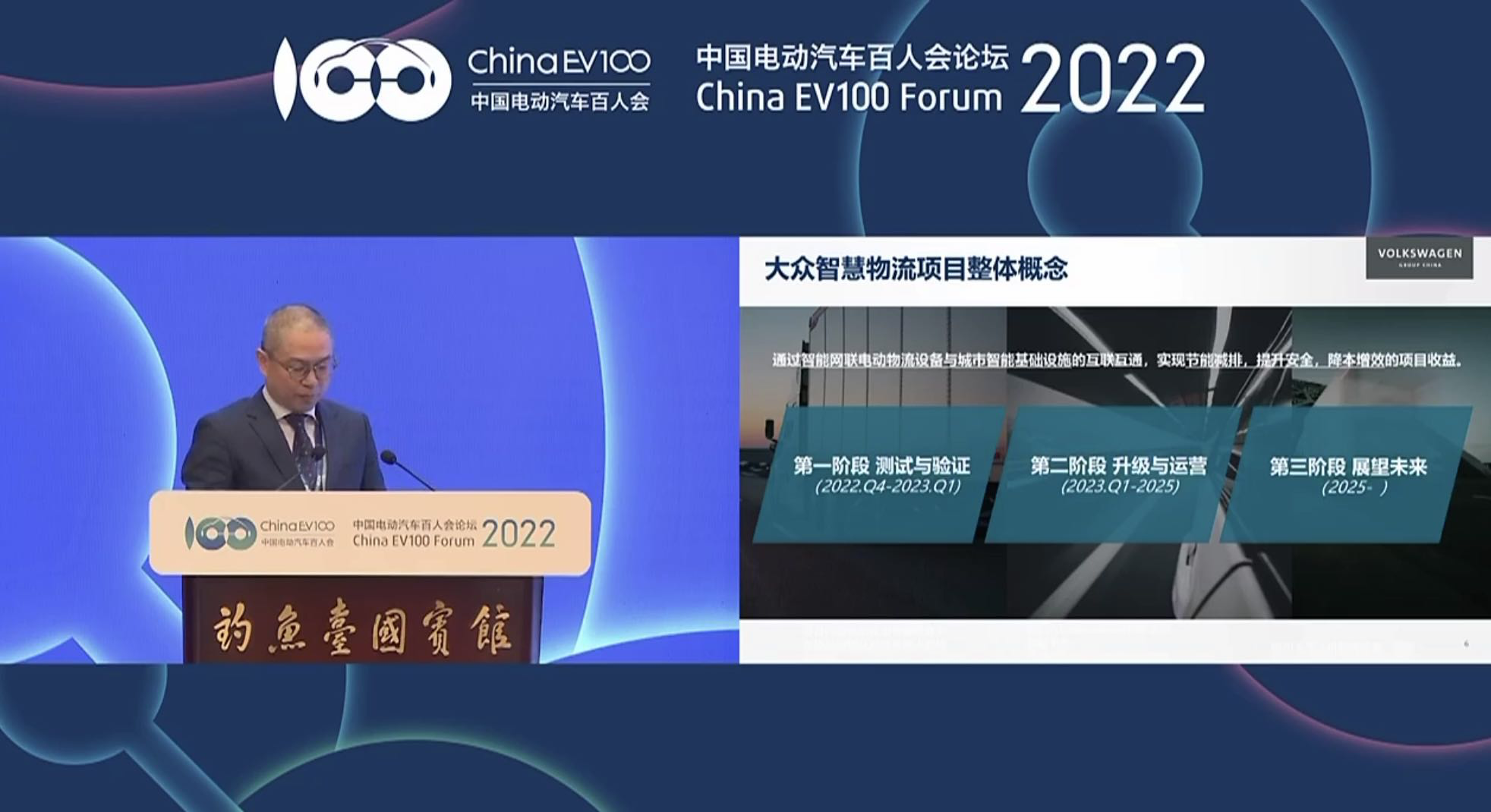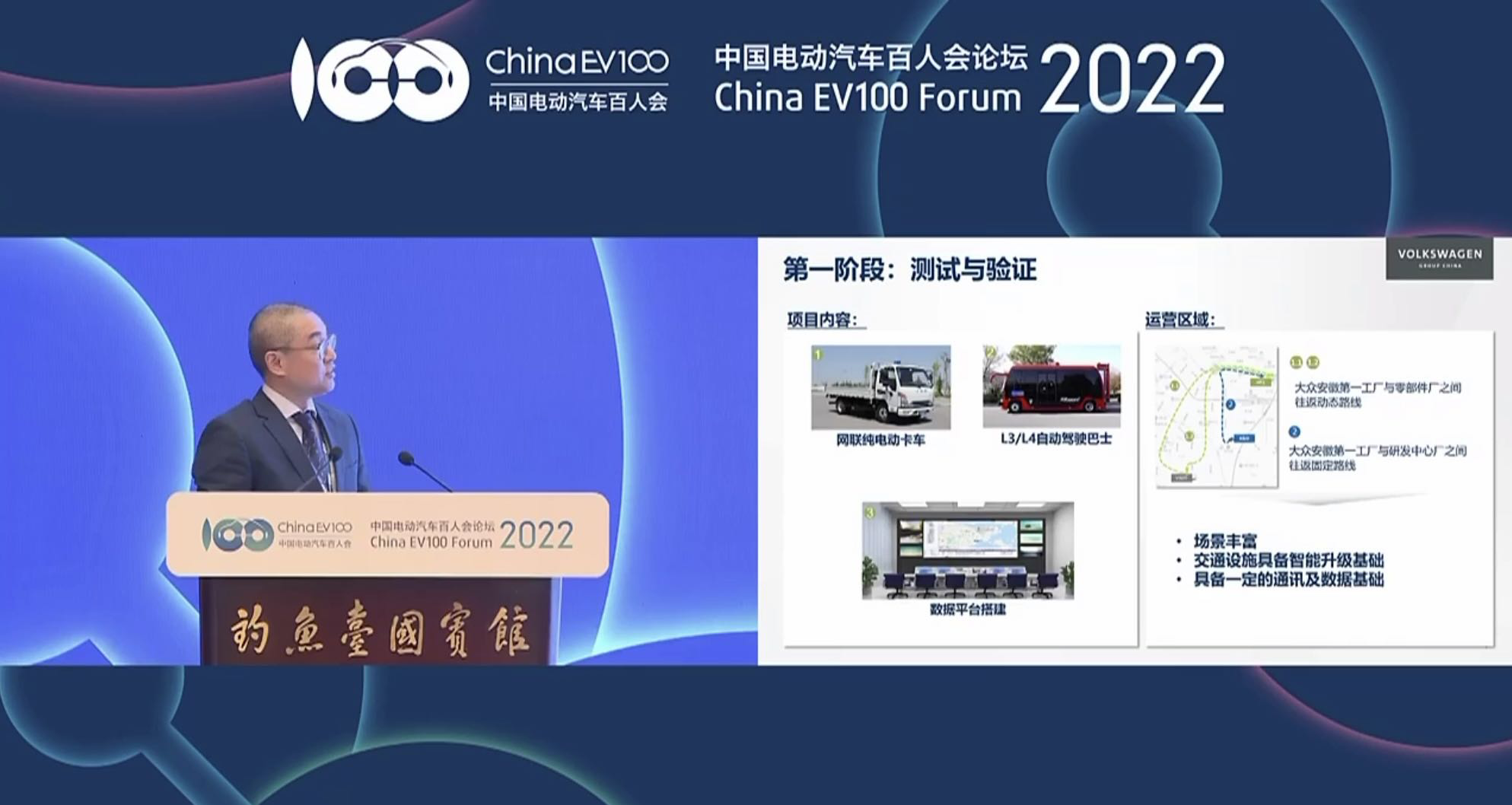On March 25, the 8th China Electric Vehicle Hundred People’s Forum 2022 “Cloud Forum” officially kicked off in Beijing. On the first day of the conference, the Dual Intelligence Forum with the theme of “Promoting the Collaborative Development of Smart Cars and Smart Cities” was launched.
Su Bahong, Senior Director of Public Affairs and Joint Venture Affairs of Volkswagen Group (China), stated that this year marks the 50th anniversary of the establishment of diplomatic relations between China and Germany, and Volkswagen has been in China for almost 40 years. If we count from 1978 when Minister Zhou Zijian led the delegation of the Ministry of Machinery Industry to visit the Volkswagen Group headquarters, it has been 44 years. If we count from the signing of the Shanghai Volkswagen joint venture in 1983, next year will be exactly 40 years.
In these 40 years, as one of the earliest international car companies to enter China, Volkswagen has indeed helped China establish the foundation of modern automotive industry. At the same time, Volkswagen has also gained huge benefits from the Chinese market. Therefore, Volkswagen can be regarded as a typical example of win-win cooperation between China and foreign countries in the reform and opening up period.
In the new historical period, as a member of the Chinese auto industry, Volkswagen is still conscious of the new work to be done. Su Bahong stated that the reason why Volkswagen chose the topic of smart logistics is based on the following three reasons:
-
The interconnection of all things is not only an important direction for China’s future technological development, but also an important trend in the world’s technological development;
-
Volkswagen is implementing the goal of low-carbon development through practical actions;
-
OEMs have high requirements for logistics efficiency.
The reason for choosing Hefei, Anhui as the base is because Volkswagen has made huge investments in Hefei, and the core is Volkswagen’s Anhui factory. In addition, Hefei is a key development city in the “14th Five-Year Plan” for the integrated development of the Yangtze River Delta, and it is also one of the top ten national innovative cities announced by the Ministry of Science and Technology.
Volkswagen chose to start the project in the Hefei Economic and Technological Development Zone, and according to the 2021 selection results of the Ministry of Commerce, Hefei Economic and Technological Development Zone ranks in the top ten in the country, first in the central and western regions, and fifth in the country in terms of utilizing foreign capital.
In recent years, Volkswagen has made significant progress in Hefei, Anhui. At the end of 2020, the Phase I main building of the Volkswagen R&D Center was put into use. In April 2021, the MEB factory started construction, and in the same year, Volkswagen Anhui was officially inaugurated and the R&D center was completed. In 2022, the body shop factory building was delivered. On March 9th just passed, Volkswagen’s comprehensive experimental center R&D test site started construction.
To this end, the CEO of Volkswagen Anhui stated that the progress of Volkswagen’s Anhui factory and R&D center reflects the “Hefei speed”. At the same time, Volkswagen has planned related supporting projects, such as power batteries, parts, digital marketing, and smart logistics.# Volkswagen will explore the Double Intelligence Construction in Hefei
Volkswagen said that exploring the service of a pure electric vehicle manufacturing base through Double Intelligence Construction (DIC) is of great significance in Hefei, a vibrant city promoting development through technology.
Volkswagen’s exploration of DIC in Hefei began with the Robotaxi pilot project in 2020. With the gradual construction of Volkswagen’s Anhui factory, Volkswagen believes that intelligent logistics is a more suitable topic for the next stage of smart cities:
-
From the perspective of technology, the previous project focused on single-car intelligence, and was not closely integrated with smart infrastructure;
-
From the perspective of scenario, intelligent logistics is based on fixed routes, serving real scenes and is therefore more practical;
-
In terms of business models, both are exploring business models. But for Volkswagen, the intelligent logistics project combined with the actual logistics needs of the factory is more conducive to the study of business models;
-
From the perspective of industry participation, there are few host companies doing smart logistics projects, so this exploration is more meaningful.
Su Baohong, the project leader, introduced that the overall concept of intelligent logistics is divided into three stages:

The three contents of the first stage are the networked electric truck fleet, autonomous driving buses, and the construction of a data platform. In the process of selecting relevant routes, we have completed road survey with local technology, housing and construction, traffic police, urban management and other departments, and summarized the following three characteristics: rich scenes, intelligent upgrading infrastructure of traffic facilities, and a certain data and communication foundation.

The second stage will be upgraded based on the previous stage in terms of technology and scale; the third stage will expand its scope and look to the future.
Su Baohong also said that from the perspective of a host company, the main task for a long time is to ensure that vehicles are off the assembly line on time. Therefore, the scale of the project in the early stage should not be too large due to two reasons:
Firstly, as a vehicle manufacturing enterprise, logistics has a direct impact on production. As an exploratory project, it should avoid causing too much interference to actual production;
Secondly, when the business model is not yet clear, too large a scale is impractical for a single vehicle enterprise.
Although the scale in the initial stage will not be very large, Volkswagen, as an international vehicle company, provides everyone with a valuable real application scenario through joint research, discussion and practice, making intelligent logistics truly help smart connected cars and smart cities to develop synergistically.
In addition, as an international and traditional enterprise, Volkswagen needs to bridge the gap in different technologies, languages, concepts, and expertise in the face of new business fields and new partners, while maintaining close communication and contact with all levels of government.Subahong summarized that Volkswagen must organically integrate the advantageous resources of various parties including the government, establish an industrial ecosystem with a clear business model, scale effect, and cooperative symbiosis, to support the sustainable development of enterprises and social economy.
This article is a translation by ChatGPT of a Chinese report from 42HOW. If you have any questions about it, please email bd@42how.com.
